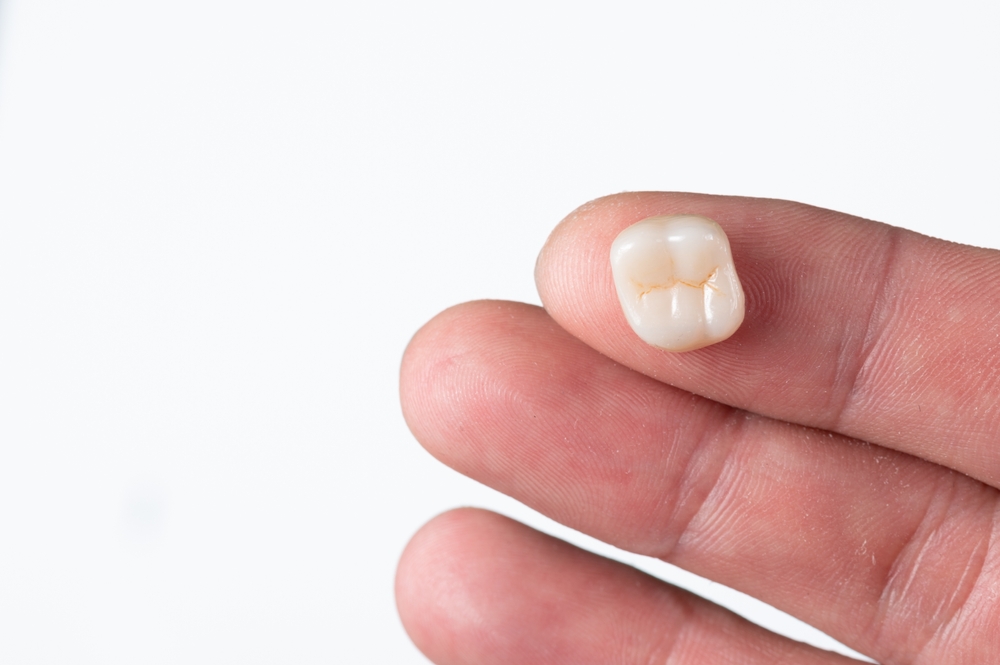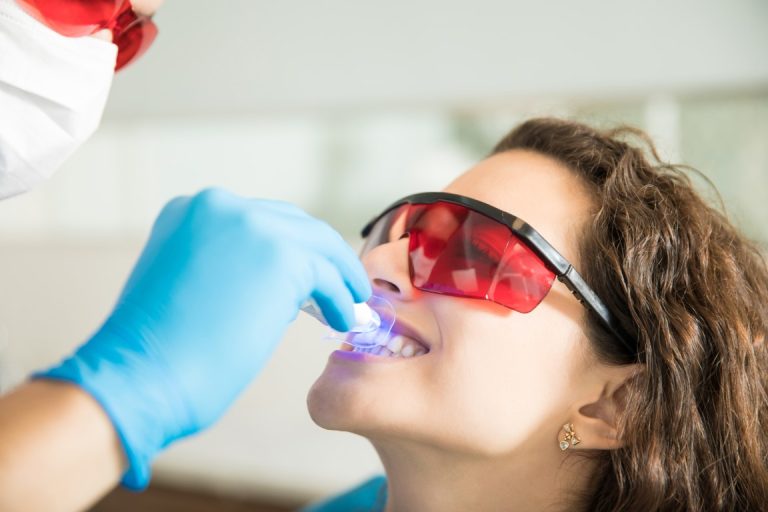If you’ve ever had a tooth that’s chipped, cracked, or worn down, you may have heard your dentist mention dental crowns as a possible solution. Dental crowns are a common and effective way to restore damaged teeth, improve your smile, and keep your mouth healthy. But what exactly are they, and how do they work?
What Are Dental Crowns?
A dental crown is a custom-made cap that fits over a damaged or weakened tooth to restore its shape, size, strength, and appearance. Crowns are designed to look and function just like your natural teeth, making them an excellent option for both cosmetic and restorative dental care.
Why Would You Need a Dental Crown?
You might need a crown if:
- You have a large cavity that a filling can’t fix.
- Your tooth is cracked, worn down, or broken due to grinding or injury.
- You’ve had a root canal, and the tooth needs protection.
- You want to cover a misshapen or discolored tooth for cosmetic reasons.
- You’re getting a dental bridge, and crowns are needed to support it.
- You’re replacing a missing tooth with a dental implant, which requires a crown on top.
How Do Dental Crowns Work?
Dental crowns function by completely covering the damaged tooth, providing support and strength while maintaining a natural appearance.
The Dental Crown Process: Step by Step
Getting a dental crown typically involves two visits to the dentist:
1. Initial Consultation and Tooth Preparation
- Your dentist examines the tooth and may take X-rays to assess the damage.
- If needed, they will file down the tooth to make room for the crown.
- If the tooth is too damaged, a filling material may be used to build it up.
2. Taking Impressions
- Once the tooth is shaped, your dentist takes an impression of it.
- This mold is sent to a dental lab, where your permanent crown is custom-made.
3. Temporary Crown Placement
- A temporary crown is placed over your tooth to protect it while your permanent crown is being made (this usually takes 1-2 weeks).
4. Permanent Crown Placement
- Once your crown is ready, your dentist removes the temporary one.
- The permanent crown is carefully fitted, adjusted, and cemented in place.
- After a final check to ensure your bite feels right, you’re good to go!
Types of Dental Crowns
Dental crowns come in different materials, each with its own advantages.
1. Porcelain Crowns
- Best for front teeth due to their natural look.
- Matches the color of your existing teeth.
- Can be slightly more fragile compared to metal-based crowns.
2. Ceramic Crowns
- Metal-free and highly aesthetic.
- Strong and durable, great for both front and back teeth.
- Resistant to stains and wear.
3. Metal Crowns (Gold, Silver, Alloy)
- Extremely strong and long-lasting.
- Ideal for molars where chewing pressure is highest.
- More noticeable due to their metallic color.
4. Zirconia Crowns
- Highly durable and natural-looking.
- Great for patients who grind their teeth.
- A good balance between strength and aesthetics.
5. Composite Resin Crowns
- More affordable than other options.
- Can wear down faster compared to porcelain or metal crowns.
- May stain over time.
Benefits of Dental Crowns
Dental crowns offer several advantages, making them one of the most popular restorative treatments.
- Strengthens and protects damaged or weak teeth.
- Restores function, allowing you to chew and speak properly.
- Blends seamlessly with natural teeth for an improved smile.
- Prevents further damage by shielding the tooth.
- Long-lasting solution when properly cared for.
How Long Do Dental Crowns Last?
On average, dental crowns last between 10 to 15 years, but with proper care, they can last even longer! Their longevity depends on factors like:
- Oral hygiene – Brushing and flossing daily helps prevent decay.
- Grinding or clenching teeth – This can wear down the crown faster.
- Chewing habits – Avoid chewing on hard foods, ice, or pens.
- Regular dental checkups – Seeing your dentist twice a year ensures early detection of issues.
If your crown becomes loose or damaged, see your dentist as soon as possible to avoid further complications.
Caring for Your Dental Crowns
Taking care of your dental crown is easy—just treat it like a natural tooth!
- Brush twice a day with fluoride toothpaste.
- Floss daily to keep the gumline clean.
- Avoid sticky or hard foods that could damage the crown.
- Wear a nightguard if you grind your teeth.
- Visit your dentist regularly for checkups and cleanings.
With proper care, your crown will stay strong and functional for many years.
Are Dental Crowns Right for You?
If you have a tooth that’s damaged, weak, or cosmetically unappealing, a dental crown might be the perfect solution. But if you’re unsure, here are some alternatives:
- Dental veneers – Best for minor cosmetic improvements.
- Fillings or bonding – Suitable for small cavities or chips.
- Onlays or inlays – Partial restorations that cover part of the tooth.
Your dentist can help determine the best option based on your specific needs.
Conclusion: Dental Crowns
Dental crowns are a fantastic way to restore and enhance your smile while keeping your teeth strong and healthy. Whether you’re fixing a broken tooth, covering up discoloration, or protecting a tooth after a root canal, crowns offer both functional and cosmetic benefits.
If you think you might need a crown, the best thing you can do is schedule a consultation with 360 Dental to discuss your options. A healthy, confident smile is just a crown away!




